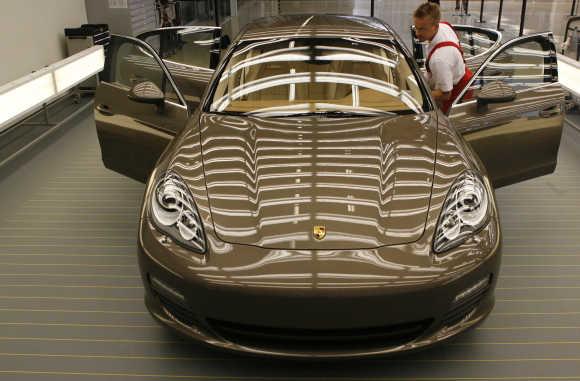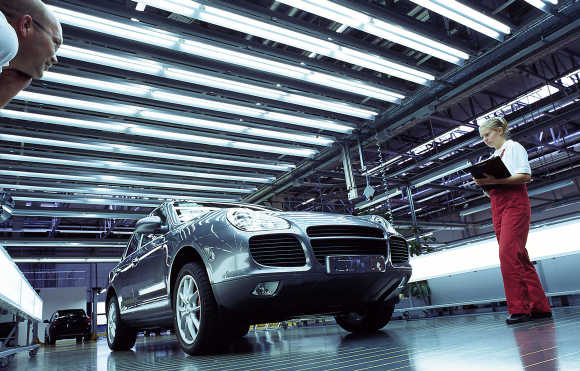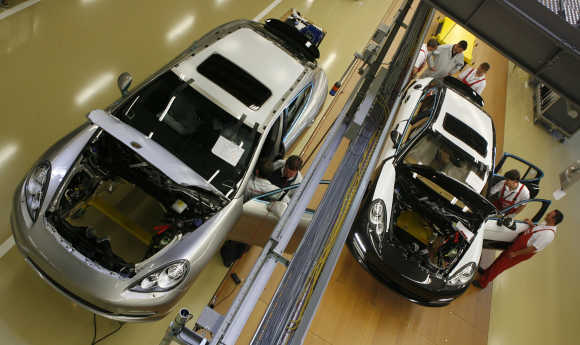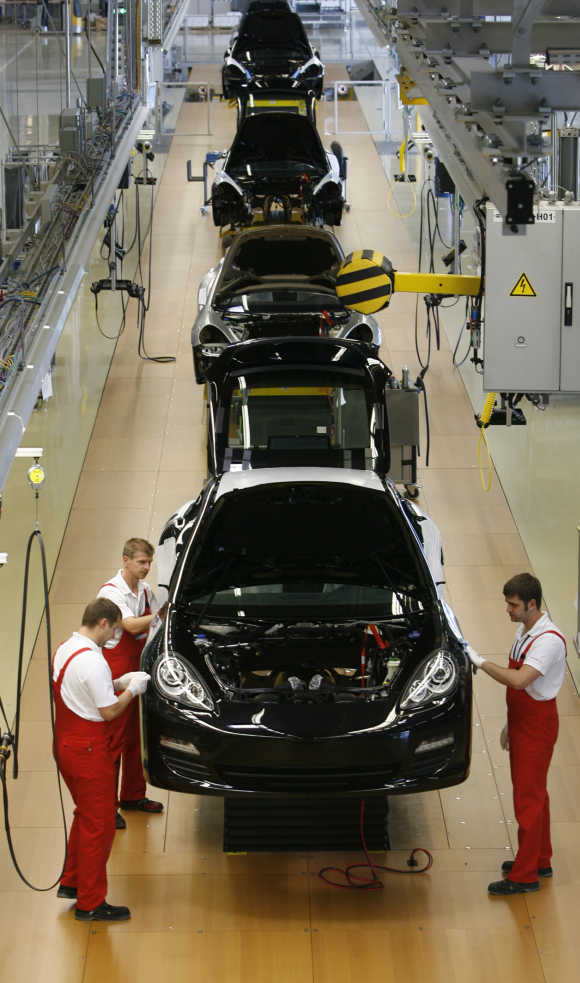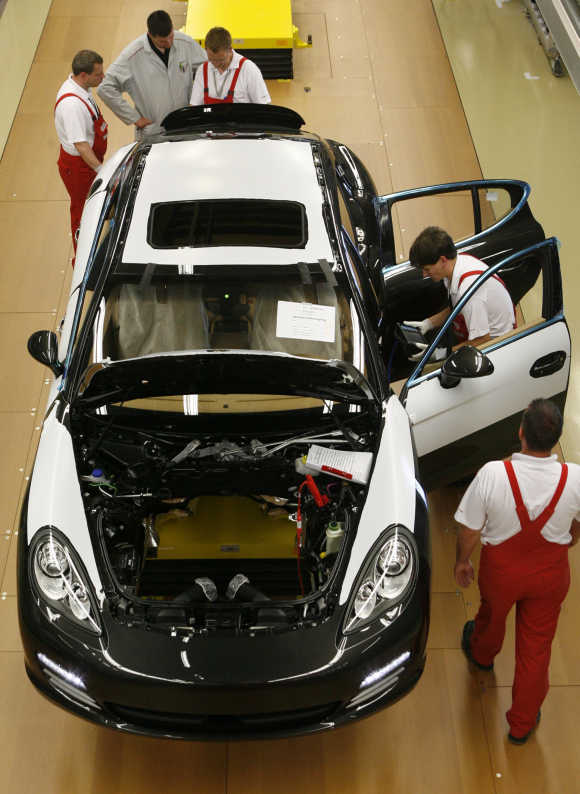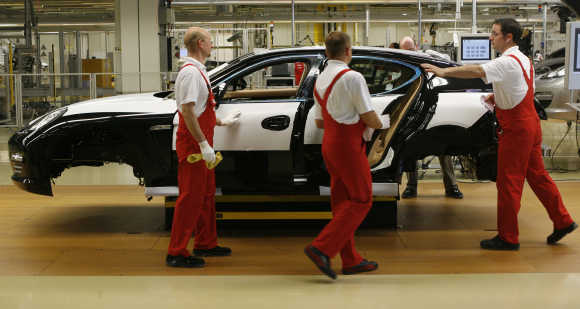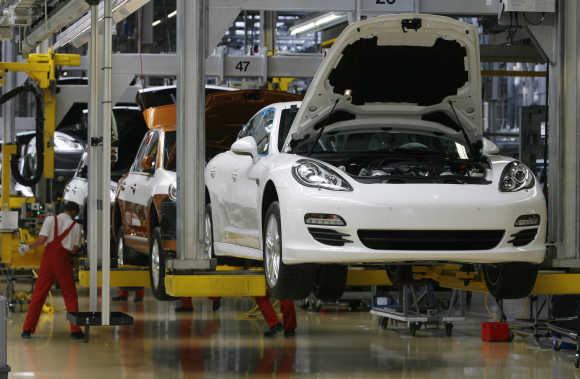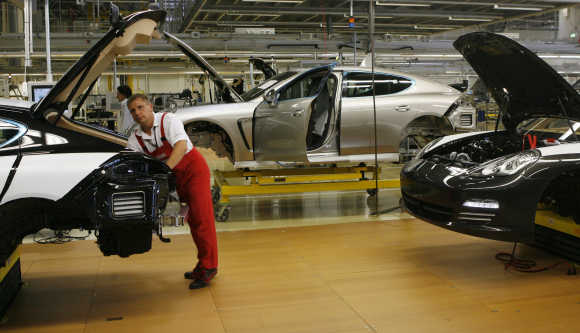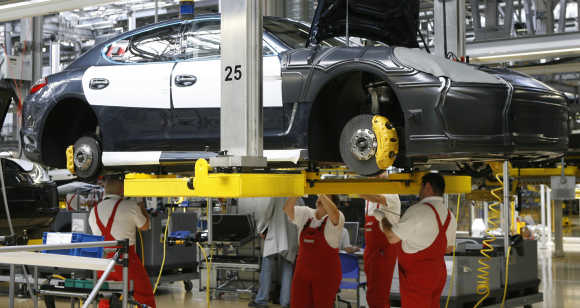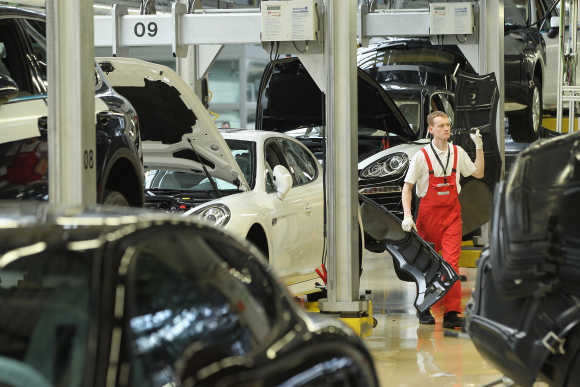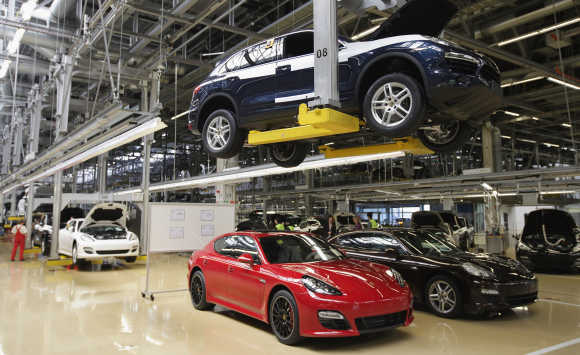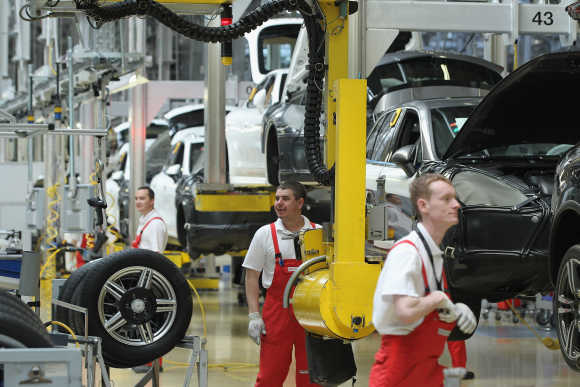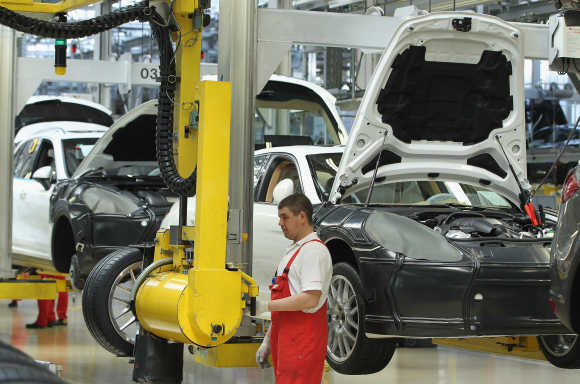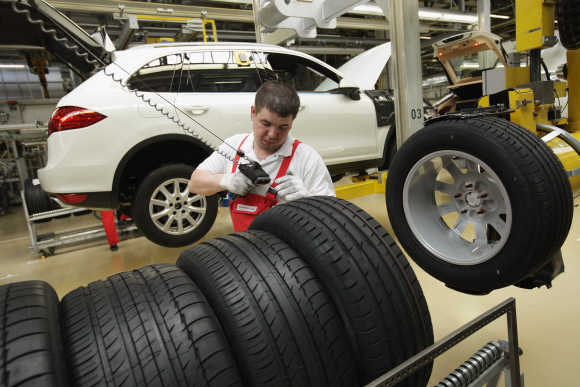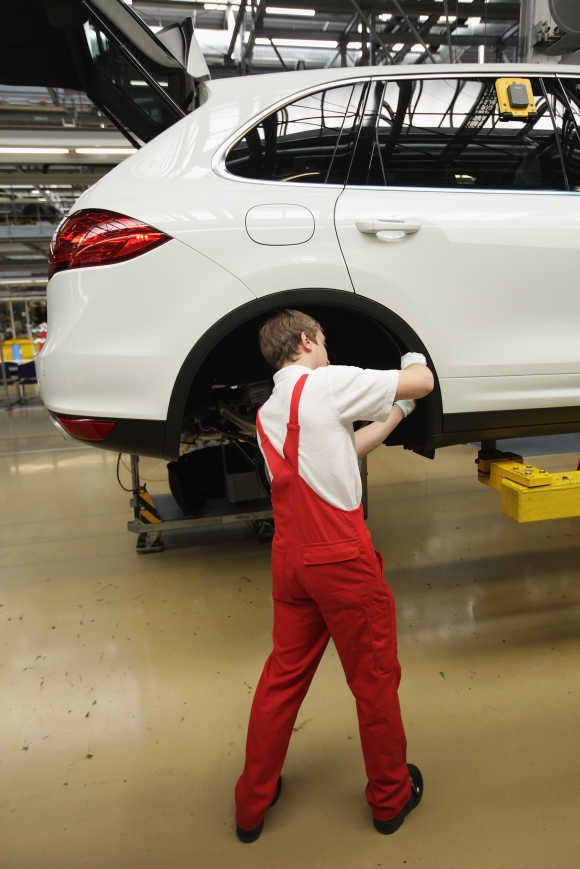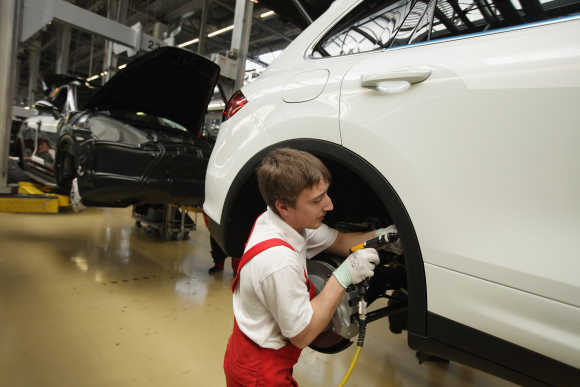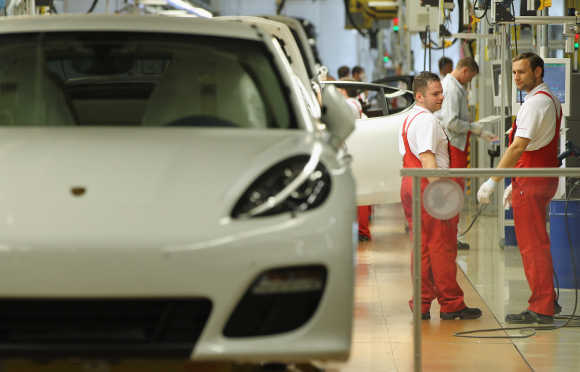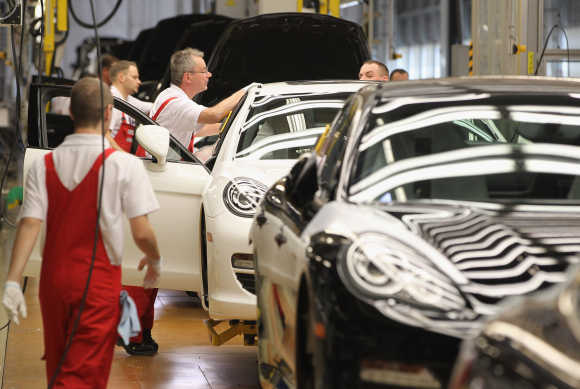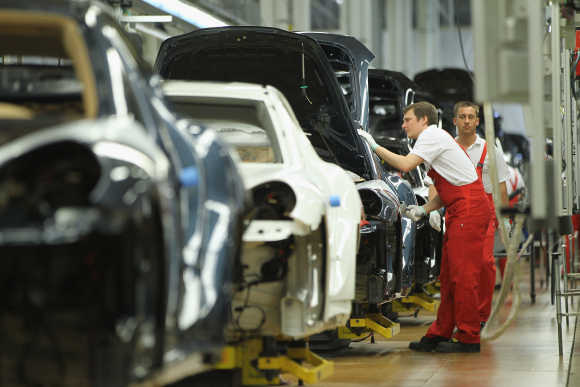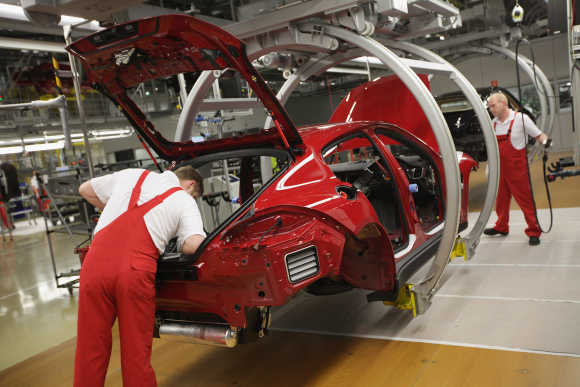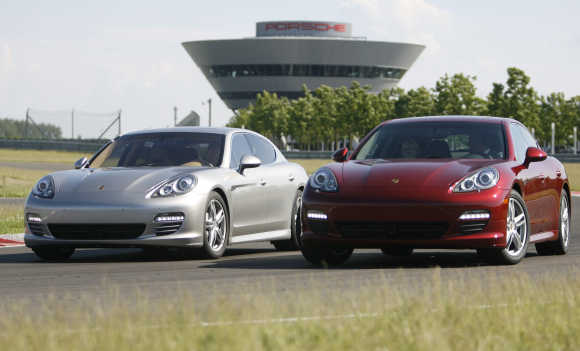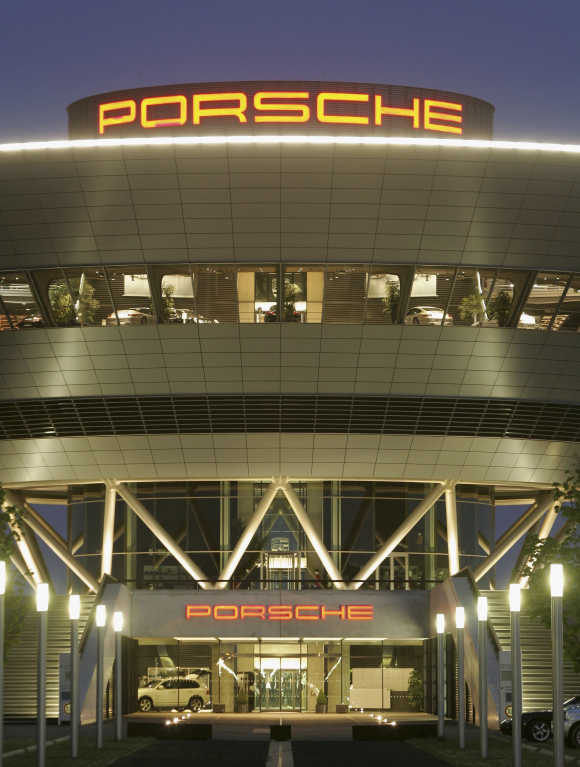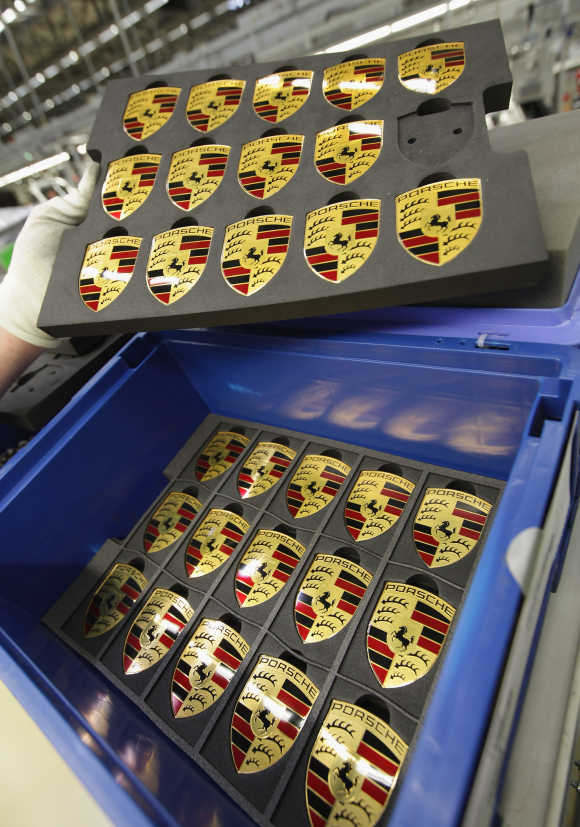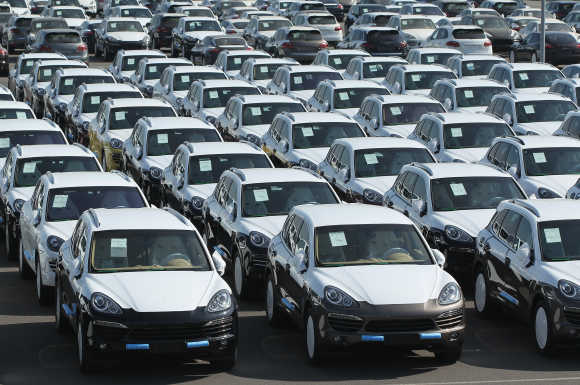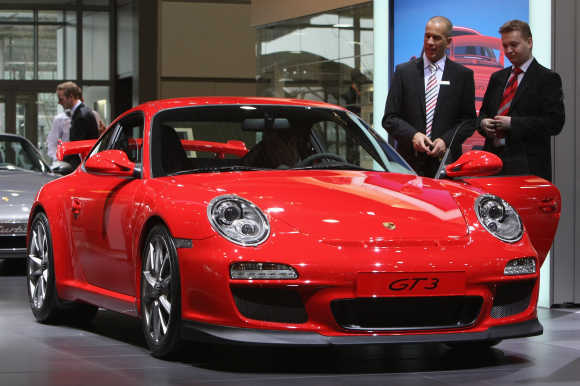 | « Back to article | Print this article |
An inside look at how Porsche is built
Porsche cars are famous around the world for their speed, design and luxury.
Let's take a look at how some of these high-end cars are manufactured.
Click NEXT to see more...
An inside look at how Porsche is built
Professor Ferdinand Porsche founded the company called "Dr Ing hc F Porsche GmbH in 1931, with main offices in the centre of Stuttgart.
Initially, the company offered motor vehicle development work and consulting, but did not build any cars under its own name.
Click NEXT to read more...
An inside look at how Porsche is built
One of the first assignments the new company received was from the German government to design a car for the people, a German: Volkswagen.
Click NEXT to read more...
An inside look at how Porsche is built
This resulted in the Volkswagen Beetle, one of the most successful car designs of all time. The Porsche 64 was developed in 1939 using many components from the Beetle.
Click NEXT to read more...
An inside look at how Porsche is built
During World War II, Volkswagen production turned to the military version of the Volkswagen Beetle, the Kubelwagen, 52,000 produced, and Schwimmwagen, 14,000 produced.
Click NEXT to read more...
An inside look at how Porsche is built
Porsche produced several designs for heavy tanks during the war, losing out to Henschel & Son in both contracts that ultimately led to the Tiger I and the Tiger II.
Click NEXT to read more...
An inside look at how Porsche is built
However, not all this work was wasted, as the chassis Porsche designed for the Tiger I was used as the base for the Elefant tank destroyer.
Porsche also developed the Maus super-heavy tank in the closing stages of the war, producing two prototypes.
Click NEXT to read more...
An inside look at how Porsche is built
At the end of WW2 in 1945, the Volkswagen factory at KdF-Stadt fell to the British. Ferdinand lost his position as Chairman of the Board of Management of Volkswagen, and a British Army Major - Ivan Hirst was put in charge of the factory.
Click NEXT to read more...
An inside look at how Porsche is built
On December 15 of that year, Ferdinand was arrested for war crimes, but not tried. During his 20-month imprisonment, Ferdinand Porsche's son, Ferry Porsche, decided to build his own car because he could not find an existing one that he wanted to buy.
Click NEXT to read more...
An inside look at how Porsche is built
He also had to steer the company through some of its most difficult days until his father's release in August 1947.
The first models of what was to become the 356 were built in a small sawmill in Gmund, Austria.
Click NEXT to read more...
An inside look at how Porsche is built
The prototype car was shown to German auto dealers, and when pre-orders reached a set threshold, production was begun.
Many regard the 356 as the first Porsche simply because it was the first model sold by the fledgling company.
Click NEXT to read more...
An inside look at how Porsche is built
Porsche commissioned a Zuffenhausen-based company, Reutter Karosserie, which had previously collaborated with the firm on Volkswagen Beetle prototypes, to produce the 356's steel body.
Click NEXT to read more...
An inside look at how Porsche is built
In 1952, Porsche constructed an assembly plant (Werk 2) across the street from Reutter Karosserie; the main road in front of Werk 1, the oldest Porsche building, is now known as Porschestrasse.
The 356 was road certified in 1948.
Click NEXT to read more...
An inside look at how Porsche is built
Porsche's company logo was based on the coat of arms of Free People's State of Wurttemberg of former Weimar Germany, which had Stuttgart as its capital and became part of Baden-Wurttemberg after the political consolidation of West Germany in 1949.
Click NEXT to read more...
An inside look at how Porsche is built
Not long afterwards, on January 30, 1951, Ferdinand Porsche died from complications following a stroke.
Click NEXT to read more...
An inside look at how Porsche is built
In post-war Germany, parts were generally in short supply, so the 356 automobile used components from the Volkswagen Beetle including its internal combustion engine, transmission and suspension.
Click NEXT to read more...
An inside look at how Porsche is built
The 356, however, had several evolutionary stages, A, B, and C, while in production, and many Volkswagen parts were replaced by Porsche-made parts.
Click NEXT to read more...
An inside look at how Porsche is built
The last 356s were powered by entirely Porsche-designed engines.
Click NEXT to read more...
An inside look at how Porsche is built
The sleek bodywork was designed by Erwin Komenda who also had designed the body of the Beetle.
Click NEXT to read more...
An inside look at how Porsche is built
Porsche's signature designs have, from the beginning, featured air-cooled rear-engine configurations (like the Beetle), rare for other car manufacturers, but producing automobiles that are very well balanced.
Click NEXT to read more...
An inside look at how Porsche is built
In 1964, after some success in motor-racing, namely with the Porsche 550 Spyder, the company launched the Porsche 911 another air-cooled, rear-engined sports car, this time with a six-cylinder "boxer" engine.
Click NEXT to read more...
An inside look at how Porsche is built
The team to lay out the body shell design was led by Ferry Porsche's eldest son, Ferdinand Alexander Porsche. The design phase for the 911 caused internal problems with Erwin Komenda, who led the body design department until then.
FA Porsche complained Komenda made unauthorised changes to the design.
Click NEXT to read more...
An inside look at how Porsche is built
Company leader Ferry Porsche took his son's drawings to neighbouring chassis manufacturer Reuter. Reuter's workshop was later acquired by Porsche (so-called Werk 2).
Click NEXT to read more...
An inside look at how Porsche is built
The design group gave sequential numbers to every project (356, 550, etc.), but the designated 901 nomenclature contravened Peugeot's trademarks on all 'x0x' names, so it was adjusted to 911.
Racing models adhered to the "correct" numbering sequence: 904, 906, 908. The 911 has become Porsche's most well-known and iconic model - successful on the race-track, in rallies, and in terms of road car sales.
Click NEXT to read more...
An inside look at how Porsche is builtAn inside look at how Porche is built
Far more than any other model, the Porsche brand is defined by the 911. It remains in production; however, after several generations of revision, current-model 911s share only the basic mechanical concept of a rear-engined, six-cylinder coupe, and basic styling cues with the original car.
Click NEXT to read more...
An inside look at how Porsche is built
In 1972, the company's legal form was changed from limited partnership to public limited company, because Ferry Porsche and his sister, Louise Piech, felt their generation members did not team up well.
Click NEXT to read more...
An inside look at how Porsche is built
This led to the foundation of an Executive Board whose members came from outside the Porsche family, and a Supervisory Board consisting mostly of family members.
With this change, no family members were in operational charge of the company.
Click NEXT to read more...
An inside look at how Porsche is built
FA Porsche founded his own design company, Porsche Design, which is renowned for exclusive sunglasses, watches, furniture, and many other luxury articles.
Click NEXT to read more...
An inside look at how Porsche is built
Ferdinand Piech, who was responsible for mechanical development of Porsche's serial and racing cars, formed his own engineering bureau, and developed a five-cylinder-inline diesel engine for Mercedes-Benz.
A short time later he moved to Audi, and pursued his career through the entire company, up to and including, the Volkswagen Group boards.
Click NEXT to read more...
An inside look at how Porsche is built
The company has always had a close relationship with, initially, the Volkswagen marque, and later, the Volkswagen Group (which also owns Audi), because the first Volkswagen Beetle was designed by Ferdinand Porsche.
